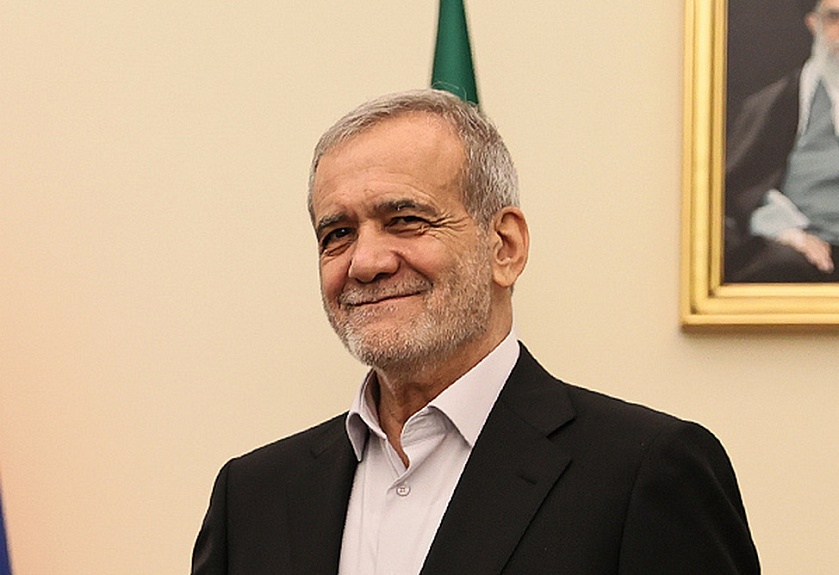OSCE chairman: talks on Nagorno-Karabakh should resume under OSCE Minsk Group co-chairs
03.12.2020,
15:47
The talks on the Nagorno-Karabakh conflict should continue within the framework of the OSCE Minsk Group for a full-fledged settlement, the OSCE Chairman-in-Office, Prime Minister, Minister of European and Foreign Affairs of Albania Edi Rama, said when opening the 27th meeting of the OSCE Ministerial Council, TASS reported.

YEREVAN, December 3. /ARKA/. The talks on the Nagorno-Karabakh conflict should continue within the framework of the OSCE Minsk Group for a full-fledged settlement, the OSCE Chairman-in-Office, Prime Minister, Minister of European and Foreign Affairs of Albania Edi Rama, said when opening the 27th meeting of the OSCE Ministerial Council, TASS reported.
"I am glad that hostilities have stopped. The time has come to fulfill the relevant obligations. I express my full support for the initiatives under the auspices of the OSCE Minsk Group co-chairs to resume the negotiation process. Substantial negotiations must continue," the OSCE chairman said.
In his words, the negotiations should lead to a comprehensive peaceful and sustainable settlement of the Nagorno-Karabakh conflict.
The Nagorno-Karabakh conflict erupted into armed clashes after the collapse of the Soviet Union in the early 1990s as the predominantly Armenian-populated enclave of Azerbaijan sought to secede from Azerbaijan and declared its independence backed by a successful referendum.
On May 12, 1994, the Bishkek cease-fire agreement put an end to the military operations. A truce was brokered by Russia in 1994, although no permanent peace agreement has been signed. Since then, Nagorno-Karabakh and several adjacent regions have been under the control of Armenian forces of Karabakh. Nagorno-Karabakh is the longest-running post-Soviet era conflict and has continued to simmer despite the relative peace of the past two decades, with snipers causing tens of deaths a year.
In the early hours of April 2, 2016 Azerbaijan, in gross violation of the agreements launched a large-scale offensive along the entire Line of Contact between the armed forces of the Nagorno-Karabakh Republic and Azerbaijan, using heavy weaponry, artillery and combat aircraft. Only thanks to the decisive actions of the Defense Army, which gave a fitting rebuff, on April 5, Azerbaijan was forced to ask, as in 1994, through the mediation of the Russian Federation for the cessation of the hostilities.
From September 27 to November 9 2020 Azerbaijani armed forces, backed by Turkey and foreign mercenaries and terrorists, attacked Nagorno-Karabakh along the entire front line, using rocket and artillery weapons, heavy armored vehicles, military aircraft and prohibited types of weapons such as cluster bombs and phosphorus weapons.
On November 9, the leaders of the Russia, Azerbaijan and Armenia signed a statement on the cessation of all hostilities in Artsakh. According to the document, the parties stopped at where they were at that time. The town of Shushi, the districts of Agdam, Kelbajar and Lachin are handed over to Azerbaijan, with the exception of a 5-kilometer corridor connecting Karabakh with Armenia.
A 2000-member Russian peacekeeping contingent has been deployed along the contact line in Karabakh and along the Lachin corridor. Internally displaced persons and refugees are returning to Karabakh and adjacent regions, prisoners of war, hostages and other detained persons and bodies of the dead are being exchanged.--0-
-0-
"I am glad that hostilities have stopped. The time has come to fulfill the relevant obligations. I express my full support for the initiatives under the auspices of the OSCE Minsk Group co-chairs to resume the negotiation process. Substantial negotiations must continue," the OSCE chairman said.
In his words, the negotiations should lead to a comprehensive peaceful and sustainable settlement of the Nagorno-Karabakh conflict.
The Nagorno-Karabakh conflict erupted into armed clashes after the collapse of the Soviet Union in the early 1990s as the predominantly Armenian-populated enclave of Azerbaijan sought to secede from Azerbaijan and declared its independence backed by a successful referendum.
On May 12, 1994, the Bishkek cease-fire agreement put an end to the military operations. A truce was brokered by Russia in 1994, although no permanent peace agreement has been signed. Since then, Nagorno-Karabakh and several adjacent regions have been under the control of Armenian forces of Karabakh. Nagorno-Karabakh is the longest-running post-Soviet era conflict and has continued to simmer despite the relative peace of the past two decades, with snipers causing tens of deaths a year.
In the early hours of April 2, 2016 Azerbaijan, in gross violation of the agreements launched a large-scale offensive along the entire Line of Contact between the armed forces of the Nagorno-Karabakh Republic and Azerbaijan, using heavy weaponry, artillery and combat aircraft. Only thanks to the decisive actions of the Defense Army, which gave a fitting rebuff, on April 5, Azerbaijan was forced to ask, as in 1994, through the mediation of the Russian Federation for the cessation of the hostilities.
From September 27 to November 9 2020 Azerbaijani armed forces, backed by Turkey and foreign mercenaries and terrorists, attacked Nagorno-Karabakh along the entire front line, using rocket and artillery weapons, heavy armored vehicles, military aircraft and prohibited types of weapons such as cluster bombs and phosphorus weapons.
On November 9, the leaders of the Russia, Azerbaijan and Armenia signed a statement on the cessation of all hostilities in Artsakh. According to the document, the parties stopped at where they were at that time. The town of Shushi, the districts of Agdam, Kelbajar and Lachin are handed over to Azerbaijan, with the exception of a 5-kilometer corridor connecting Karabakh with Armenia.
A 2000-member Russian peacekeeping contingent has been deployed along the contact line in Karabakh and along the Lachin corridor. Internally displaced persons and refugees are returning to Karabakh and adjacent regions, prisoners of war, hostages and other detained persons and bodies of the dead are being exchanged.--0-
-0-



